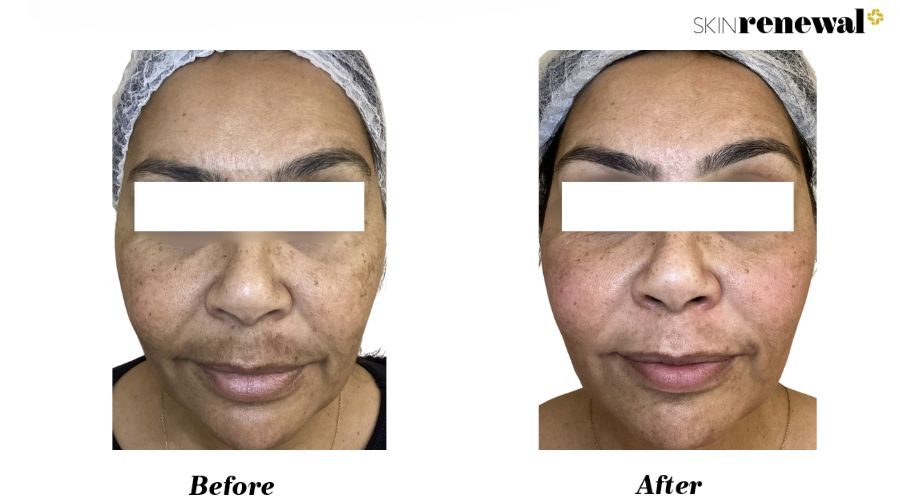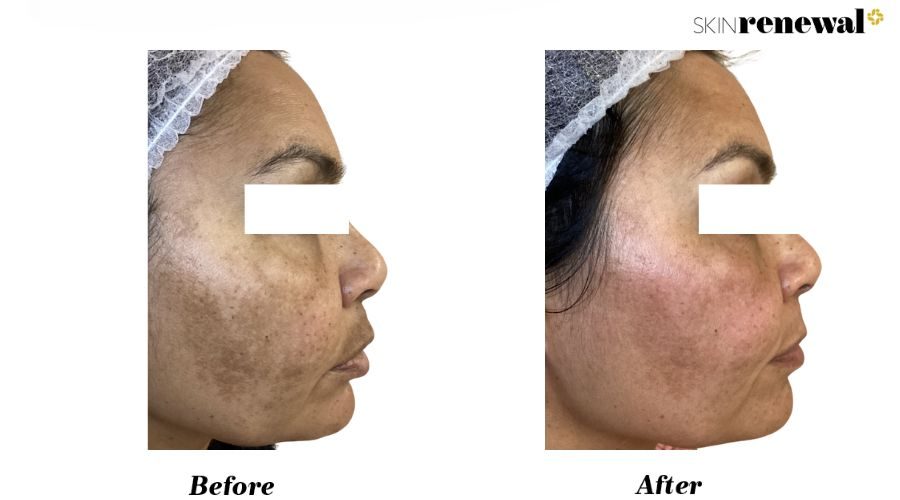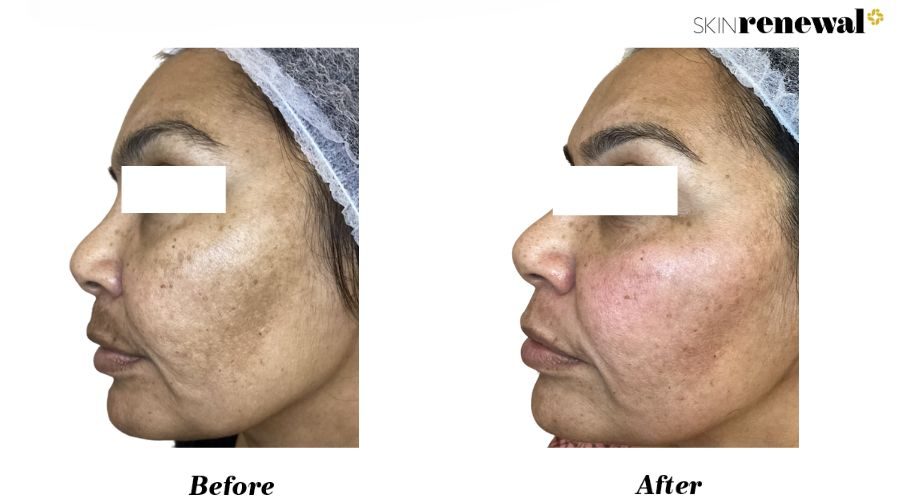What is Melasma?
Melasma is a form of hyperpigmentation characterised by brown or greyish patches, commonly on the cheeks, forehead, and upper lip. The condition is often associated with hormonal changes, particularly during pregnancy, when using oral contraceptives, or undergoing hormone replacement therapy (HRT). However, other factors such as thyroid dysfunction, certain medications, and excessive sun exposure can also trigger melasma.
Common Skin Pigmentation Disorders
- Freckles (Ephelides): Small brown spots appear after repeated sun exposure, especially in people with fair skin. These tend to darken in summer and fade in winter.
- Age Spots (Solar Lentigines): Flat, brown or black spots caused by prolonged sun exposure, typically found on the face, hands, and arms.
- Post-Inflammatory Hyperpigmentation (PIH): Dark spots that form after skin injury or inflammation, such as acne or eczema.
- Albinism: A genetic condition causing a complete lack of pigmentation due to the absence of melanin.
- Vitiligo: An autoimmune condition that leads to a patchy loss of pigmentation, resulting in irregular white patches on the skin.
Triggers of Pigmentation Disorders
Various factors can trigger pigmentation disorders like melasma. Hormonal changes, such as those experienced during pregnancy, the use of oral contraceptives, or hormone replacement therapy (HRT), are common contributors. Prolonged exposure to sun ultraviolet (UV) light can also worsen pigmentation. Additionally, certain photosensitising medications, including tetracyclines and some anti-psychotic drugs, can increase the likelihood of developing pigmentation issues.
Why Treating Melasma is Challenging
Melasma involves both superficial and deep pigmentation, treating it more challenging than other pigmentation disorders. It is often accompanied by underlying issues such as redness, sensitivity, and inflammation. This means treatment requires a comprehensive, multi-layered approach that addresses these root causes while managing pigmentation.
Skin Renewal's Doctor-Led Approach to Melasma
At Skin Renewal, we believe in a holistic, doctor-led approach to melasma treatment. During your initial consultation, one of our experienced doctors will assess your medical history, lifestyle factors, and skin condition to identify any underlying health issues contributing to your pigmentation. This personalised consultation ensures targeted treatment and addresses the condition's root cause.
Our comprehensive consultation process includes a physical examination and discussion of any external factors, such as hormonal imbalances, medications, or environmental exposures, which could exacerbate your condition. This thorough evaluation enables us to design a tailored treatment plan that offers the best results for your skin type and pigmentation severity.
The Importance of Combination Treatments
Melasma is a complex condition that often requires a combination of treatments for optimal results. At Skin Renewal, we combine various therapies to target different layers of the skin and address both superficial and deep pigmentation. This ensures that all contributing factors—vascular issues, redness, and inflammation—are managed effectively. This multi-pronged approach improves the appearance of pigmentation and promotes overall skin health.
Melasma treatments are customised based on the depth and severity of the pigmentation. Superficial treatments, such as chemical peels, Laser Genesis, PicoToning, and RF skin needling, focus on exfoliating and rejuvenating the skin to reduce pigmentation. For deeper pigmentation, treatments like PicoFractional, MesoBrite™ depigmenting mask, injected mesotherapy with Tranexamic Acid, and Dermapen skin needling with tyrosinase inhibitors are effective in targeting and breaking down pigmentation for long-term results.
Supplementation and Lifestyle Recommendations
For long-term management, we recommend daily use of a broad-spectrum SPF 50+ sunscreen, topical antioxidants such as Vitamin C and E, and essential supplements like glutathione and MSM to boost skin health and reduce pigmentation.
Skin Renewal Tips for Managing Melasma
- Avoid excessive heat exposure, such as hot baths and saunas, which can worsen inflammation and pigmentation.
- Use a daily tyrosinase inhibitor to prevent new pigment production.
- Apply broad-spectrum sunscreen (SPF 50+) daily to block harmful UVA rays.
- Take oral antioxidant supplements, such as Heliocare 360 Capsules, to increase your skin's resistance to sun damage.









